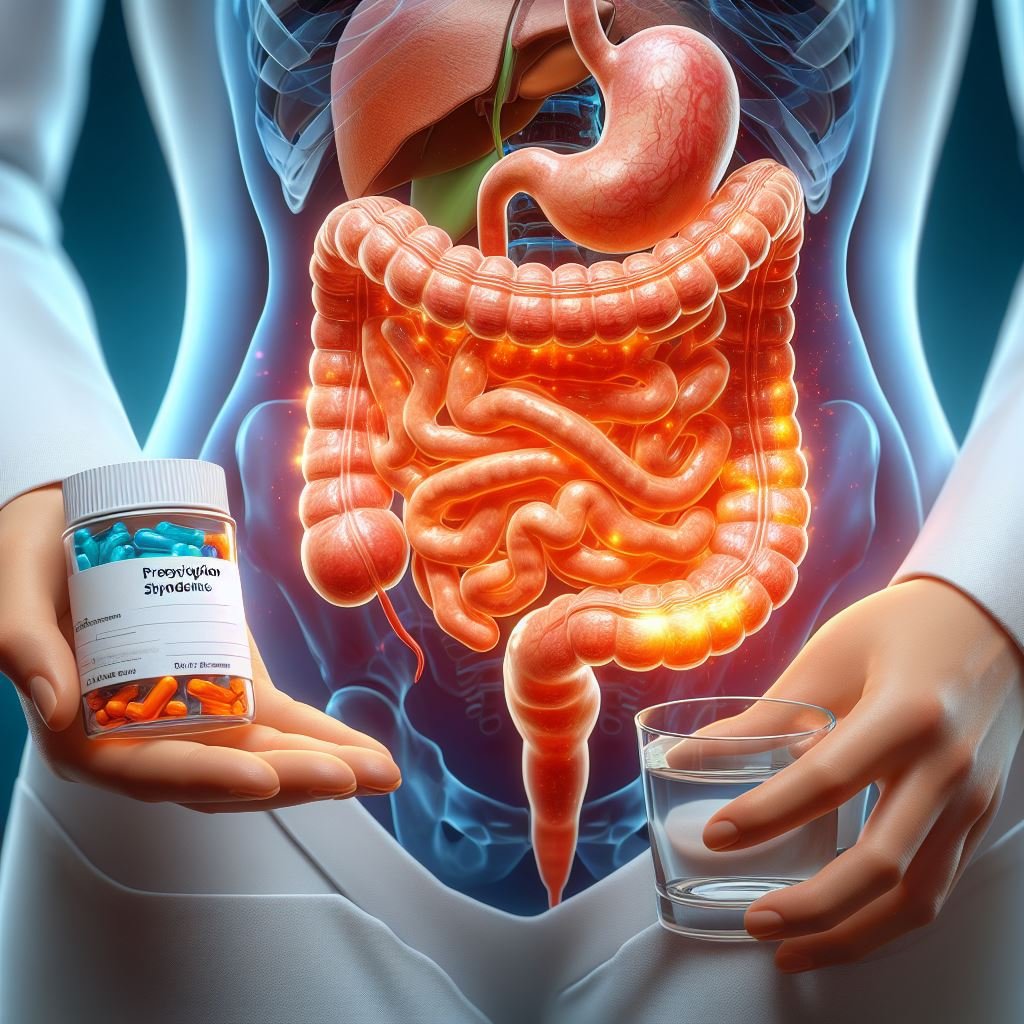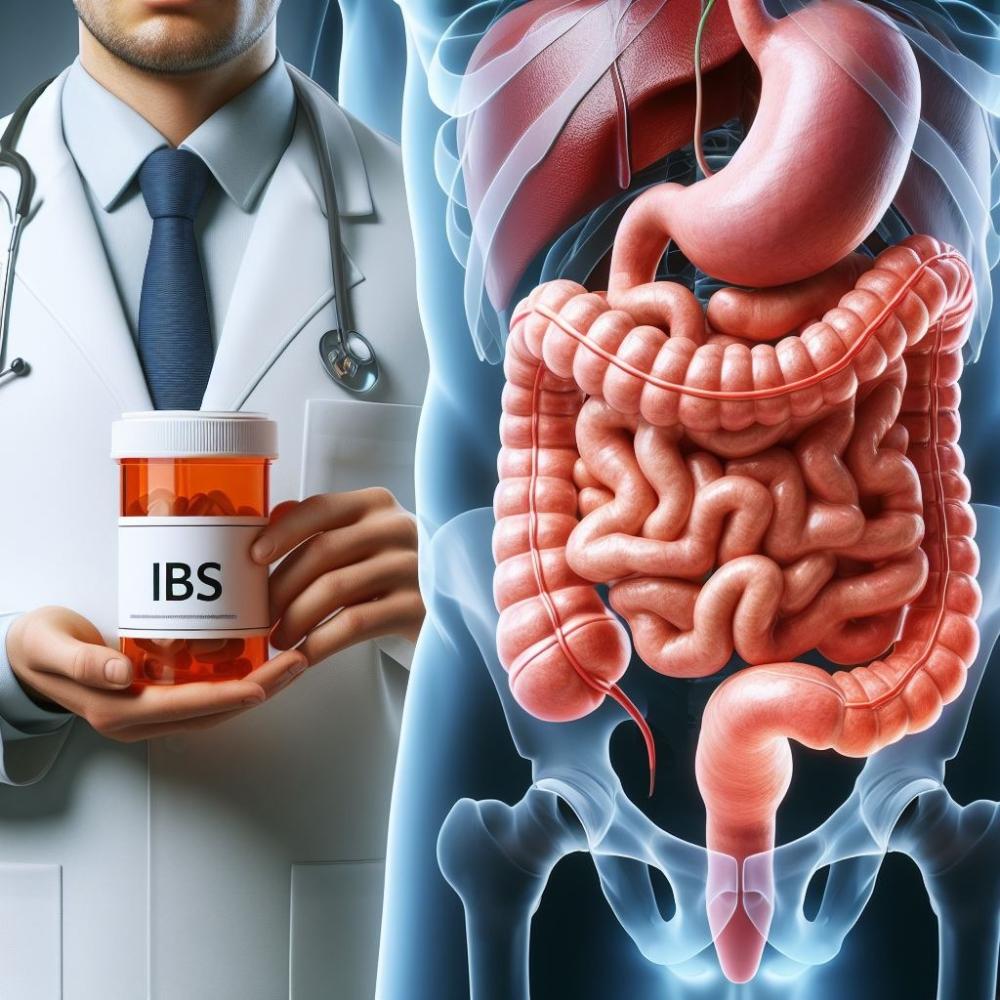Irritable bowel syndrome is a common, non-contagious digestive disorder.
It mainly affects the large intestine, so it includes a group of different intestinal symptoms.
Therefore, it varies from one person to another, in terms of its duration and severity.
Therefore, irritable bowel syndrome needs long-term treatment.
It is a chronic gastrointestinal disease of unknown cause, but it is not considered a serious condition.
However, some patients with irritable bowel syndrome may suffer from severe or annoying symptoms that hinder them from performing some daily activities.
So, follow the article to learn more details about the symptoms of irritable bowel syndrome.
Symptoms of irritable bowel syndrome
Symptoms of irritable bowel syndrome vary from one person to another.
It may also vary in severity in the same person from time to time.
But the most common symptoms of irritable colitis include:

Abdominal pain and cramping
Abdominal pain is the most common symptom of irritable bowel syndrome.
It is a feeling of cramping, colic, or contractions in the intestines.
It is usually located in the right and left abdomen or in the navel area.
Abdominal pain usually occurs after eating, but it can also appear upon waking up, and usually decreases after defecation.
So it can last from a few hours to a few days.
Bloating and gas
Altered digestion in the digestive system leads to increased gas production in the intestines.
This can cause bloating, which is a nuisance, and bloating may be accompanied by noises within the digestive tract.
This is due to the movement of gases and fluids, and the patient may improve with abdominal bloating and gases after emptying the intestines, by expelling gases or stool.
Intestinal disorders (constipation and/or diarrhea)
Although the symptoms of irritable bowel syndrome often appear as a condition and a feeling of straining when defecating.
However, diarrhea can also occur, which is usually bouts of watery stool.
In addition to the sudden feeling of the need to defecate, which may be accompanied by a feeling of nausea.
So it affects approximately one-third of colon patients.
Alternating between diarrhea and constipation
As a result of changes in bowel movement, alternating diarrhea and constipation affect about 20% of IBS patients.
Therefore, this type of irritable bowel syndrome is more severe than other types, with frequent and severe symptoms.
Food intolerance
Up to 70% of individuals with irritable bowel syndrome confirmed that there are certain foods that trigger the appearance of colon symptoms.
Two-thirds of people with irritable bowel syndrome avoid eating certain foods from the diet.
Thus, we have explained the most important intestinal symptoms that most colon patients suffer from.
However, irritable colitis can cause some other non-intestinal symptoms in the patient.
Non-intestinal symptoms of irritable bowel syndrome
For example the following:
- Headache.
- Shortness of breath, and the patient may feel symptoms similar to a heart attack.
- Stomach acidity.
- Bad breath.
- Exhaustion and constant feeling of fatigue.
- Insomnia and difficulty sleeping.
- Joint and muscle pain.
- And a mood disorder such as feeling anxious or depressed
Irritable bowel syndrome causes some psychological symptoms, such as anxiety and tension, which fall under the psychological symptoms of irritable bowel syndrome.
Especially in a patient who suffers from severe symptoms.
- Increased frequency of urination, or feeling the need to urinate frequently.
- Chronic pelvic pain or pelvic organ prolapse.
- Pain during intercourse, and increased menstrual pain, are symptoms of irritable bowel syndrome in women in particular.
It should be noted that some symptoms of irritable bowel syndrome may increase during pregnancy.
Thus, we have talked in detail about the most common symptoms of irritable bowel syndrome, but what is the treatment for irritable bowel syndrome?
Treatment of irritable bowel syndrome
In fact, there is no clear treatment for irritable bowel syndrome patients.
Therefore, treatment for irritable bowel syndrome aims to relieve colon symptoms and improve the patient's life.
So there are some medications, lifestyle changes and diet.
Treating irritable bowel syndrome with medications
Some medications include:
Antispasmodic medications
It reduces abdominal pain by relaxing the muscles in the intestines.
Laxatives
It works to alleviate constipation.
Antibiotics
Such as (Rifaximin), to reduce diarrhea associated with irritable bowel syndrome.
Probiotics
They are live bacteria and good yeasts, which are very beneficial for digestive system health.
It helps relieve abdominal pain and cramps.
Treating irritable bowel syndrome at home
There are some home methods and tips that may help you relieve the symptoms of irritable bowel syndrome when they appear.
Or in preventing irritable bowel syndrome.
It includes the following:
- Drink sufficient amounts of water throughout the day.
- Avoid drinks and foods that contain colon stimulants.
- Fiber intake should be increased in the diet, and foods rich in fiber include oats.
- Lifestyle changes, such as exercising regularly, increasing physical activity, and getting enough sleep at night.
- Reducing levels of tension, stress, and anxiety.
- Avoid sorbitol, which is found in some types of chewing gum, sugar-free foods, and sweets, because it can cause diarrhea.
- Do not skip meals, eat small meals, and eat at the same time every day.
- Eat slowly and chew well.
- Avoid smoking, and also avoid drinking alcohol.
- Avoid consuming sugary soft drinks, such as soda.
- Reduce drinking tea and coffee, as much as possible.
- Resorting to relaxation techniques, such as meditation, and
Doing some specific physical activities, such as yoga.
- Learn skills to deal with stress and tension.
- You can eat some herbs that may relieve pain, such as anise, fennel, mint, chamomile, and turmeric.
Conclusion
The symptoms of irritable bowel syndrome are many and common, so it has become a complaint for most people.
The causes of irritable bowel syndrome are different and unclear, so symptoms tend to appear and disappear over periods extending from a few days to months at a time.
It often appears after exposure to irritable bowel syndrome triggers, such as stress or psychological stress, or after eating irritating foods.
On the contrary, irritable bowel syndrome symptoms tend to disappear during periods of psychological and physical rest.
The most common symptoms of irritable colon include abdominal pain and cramping, accompanied by gas and bloating, with some intestinal disorders that include diarrhea or constipation, or alternating between them.
Gastroenteritis can also lead to irritable bowel syndrome.
Therefore, care must be taken to relax, avoid stress, anxiety and depression, and change lifestyle and diet.
If symptoms occur repeatedly with weight loss, you must consult a doctor to prescribe appropriate treatment and choose a healthy and appropriate diet and lifestyle routine for your health.

